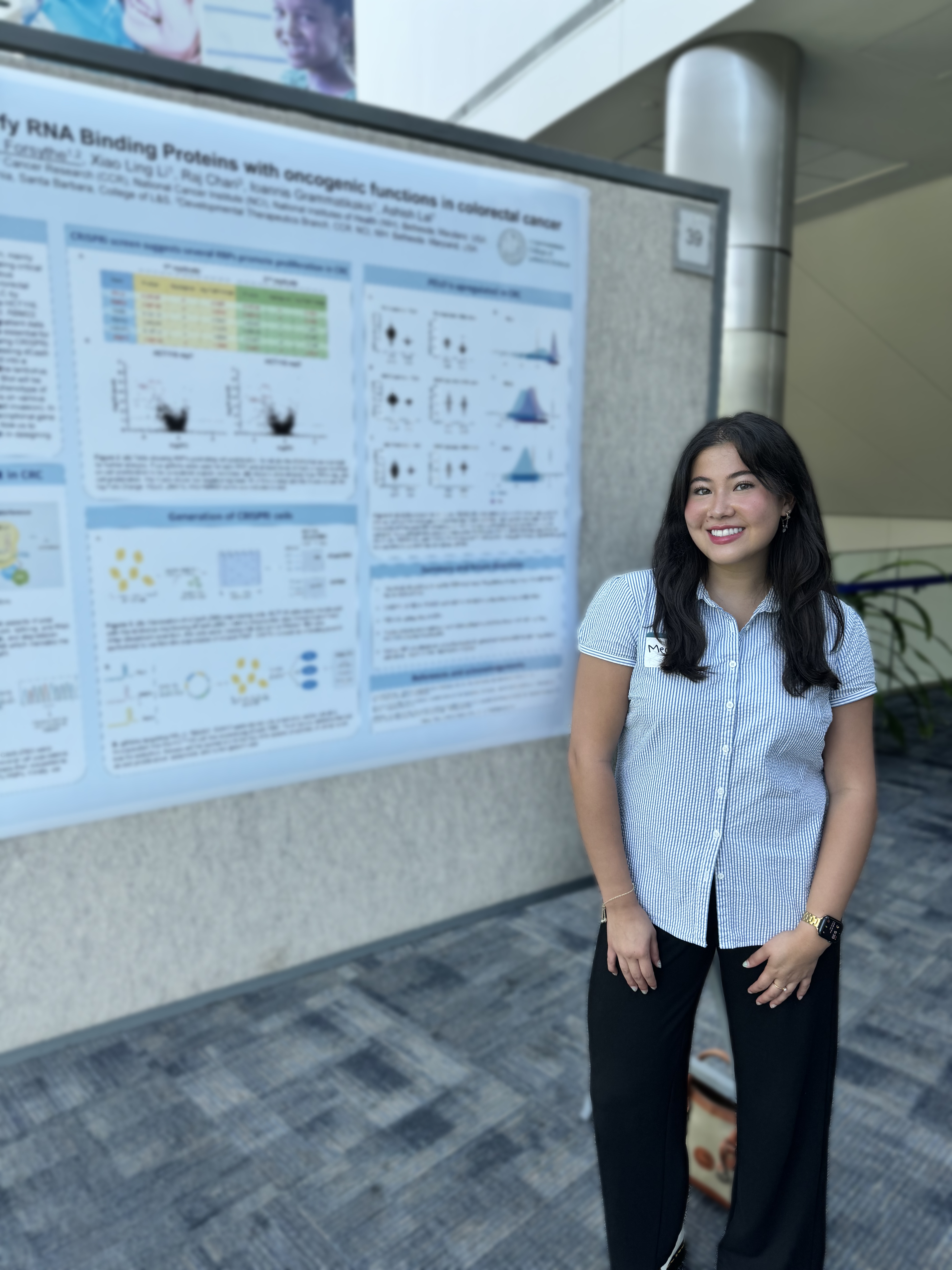A CRISPRi Screen to Identify RNA Binding Proteins With Oncogenic Functions in Colorectal Cancer
Project Overview
During the 2024 NIH Summer Internship, research focused on identifying and validating RNA Binding Proteins in colorectal cancer using a genome-wide CRISPRi screen. The top hits—PELO, RBM22, ZMAT2—were found to be critical for cancer cell proliferation and survival, as confirmed by patient expression data and DepMap analyses. These candidates are now being further validated in HCT116 cells by CRISPRi-mediated knockdown and phenotypic assays.
Methods & Results
- CRISPRi screens in HCT116 cell lines narrowed down candidates to PELO, RBM22, and ZMAT2 after examining gene depletion and enrichment patterns.
- PELO is upregulated in CRC patients, and its depletion reduces cell proliferation; similar essentiality observed for RBM22 and ZMAT2.
- Validation includes quantitative PCR, Western Blot confirmation of knockdowns, and functional assays for proliferation, apoptosis, and migration.
- Ongoing efforts will explore genome-wide regulatory mechanisms impacted by these RBPs and assess broader therapeutic implications.
Author Experience
This project was presented at NIH Poster Day 2024. It provided experience with CRISPR screening approaches and invaluable mentorship from academic and industry collaborators, strengthening my interest in a translational cancer research career.
Media

Author presenting at NIH Poster Day, 2024.- Download Poster PDF
- Download Presentation PDF
Acknowledgements
Special thanks to Dr. Ashish Lal, Dr. Ioannis Grammatikakis, Dr.Raj Chari, Dr. Xiao Ling Li and the Lal group (CCR, NCI, NIH), as well as mentors at UCSB and NIH for support during this project.
References
- Gebauer F, Schwarz T, Valcárcel J, Hentze MW. Nature Reviews Genetics, 2020.
- Liu J, Cao X. Cell Research, 2023.
- Mohamad N et al. CRISPRi Journal, 2024.